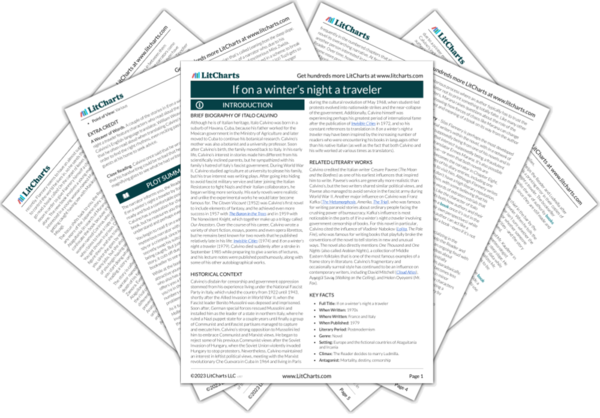Previous
On the carpet of leaves illuminated by the moon
|
Previous
On the carpet of leaves illuminated by the moon
|
If on a winter’s night a traveler: Chapter 9 Summary & Analysis |
Next
Around an empty grave
|


Upgrade to unlock the analysis and theme tracking for all of If on a winter’s night a travelerIf on a winter’s night a traveler!
Get LitCharts A+